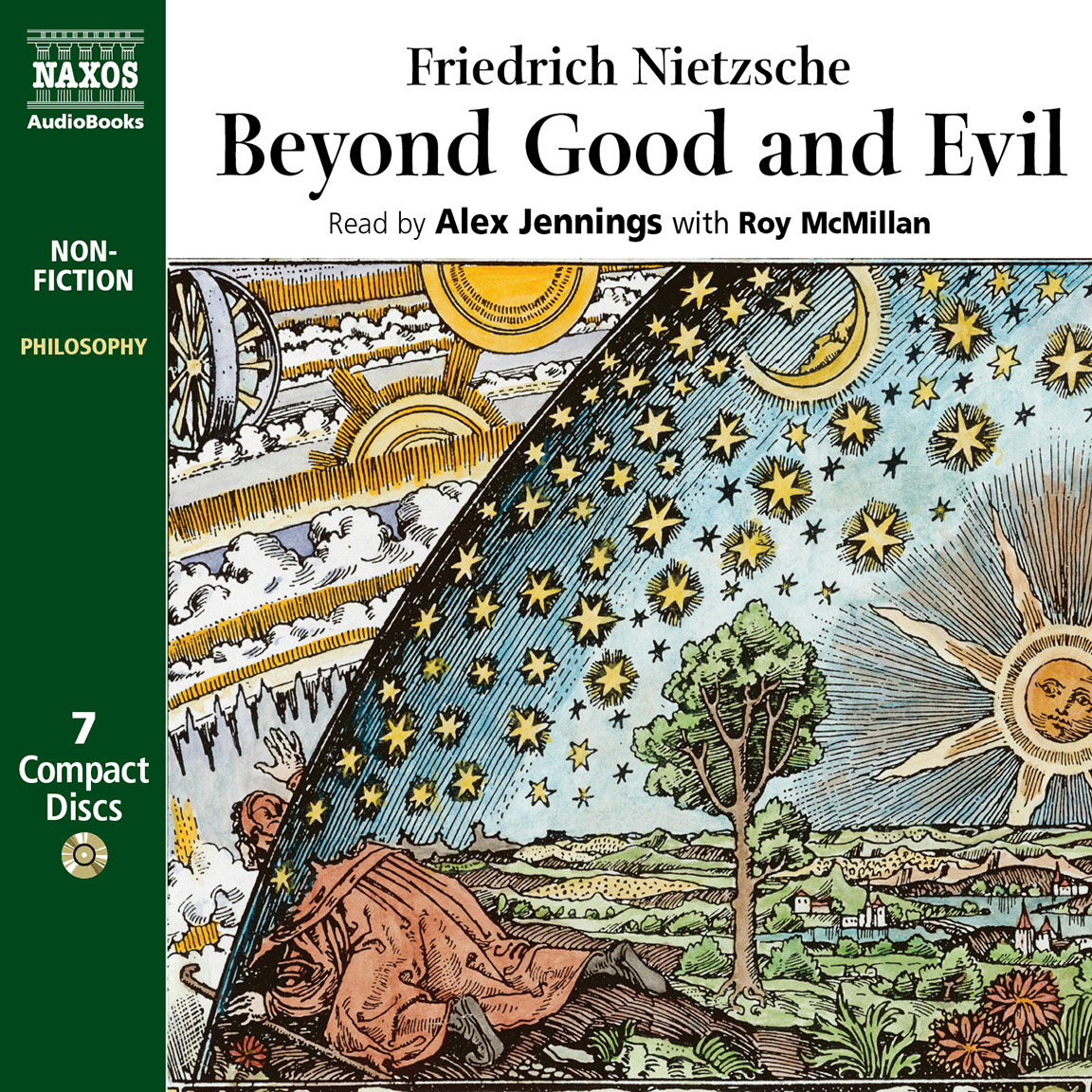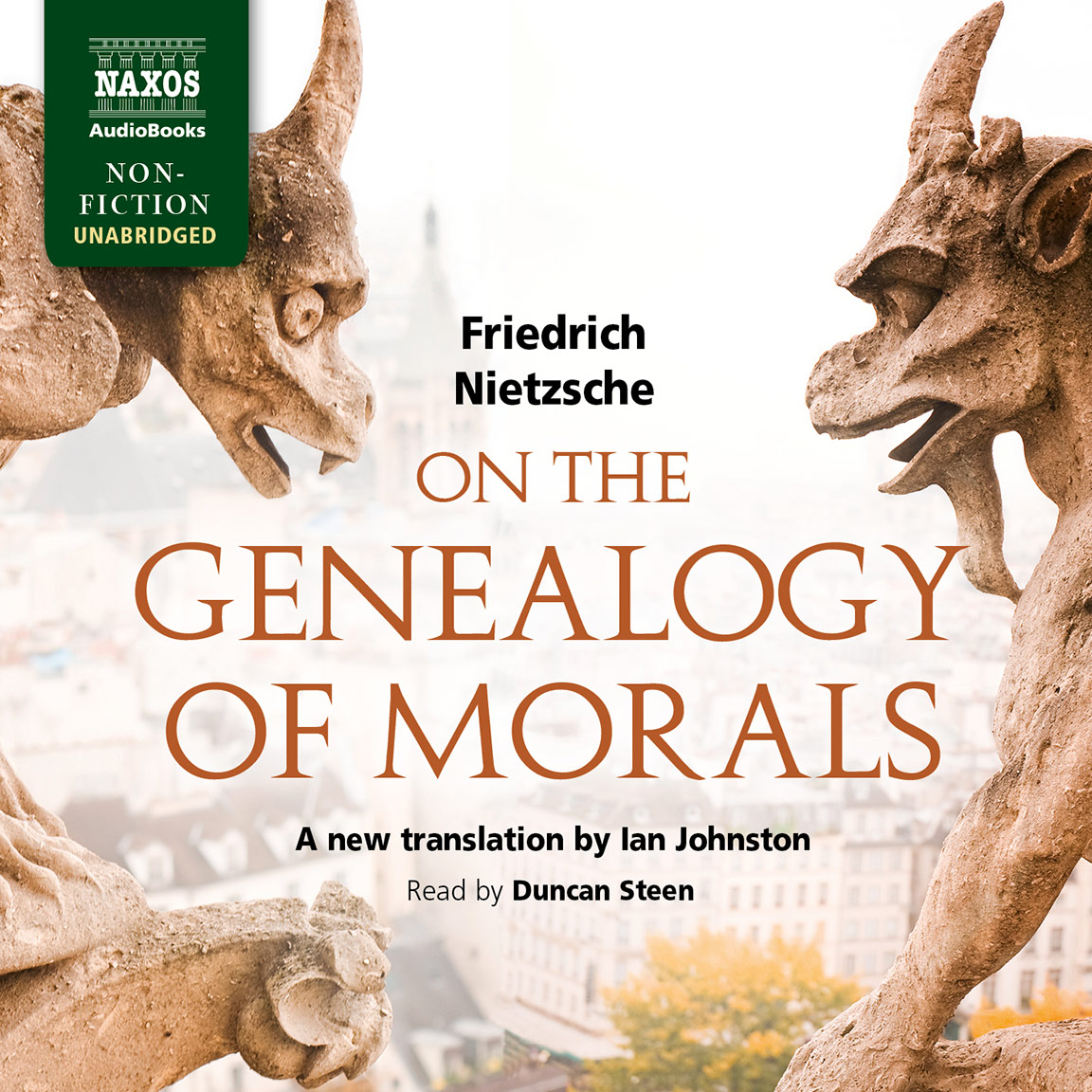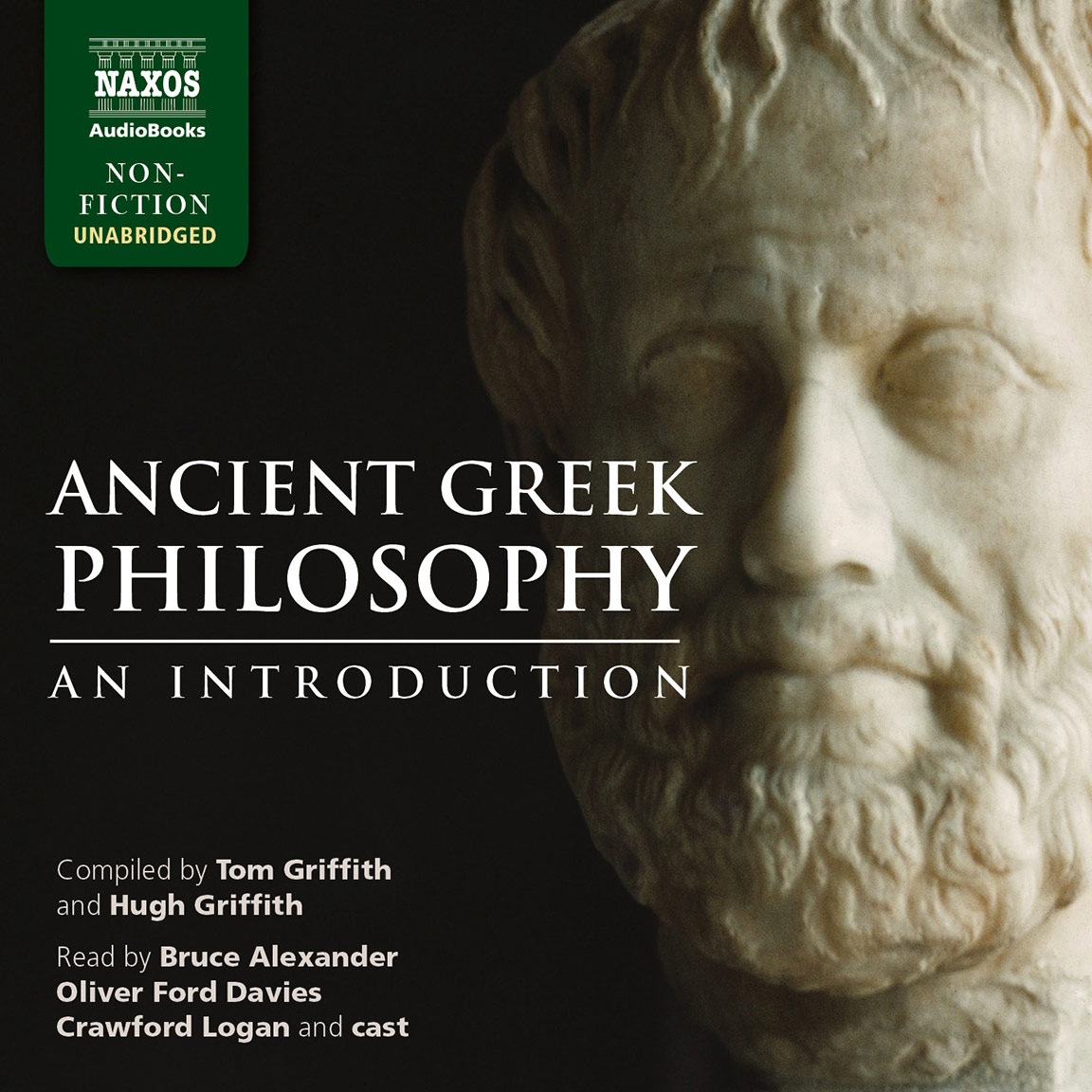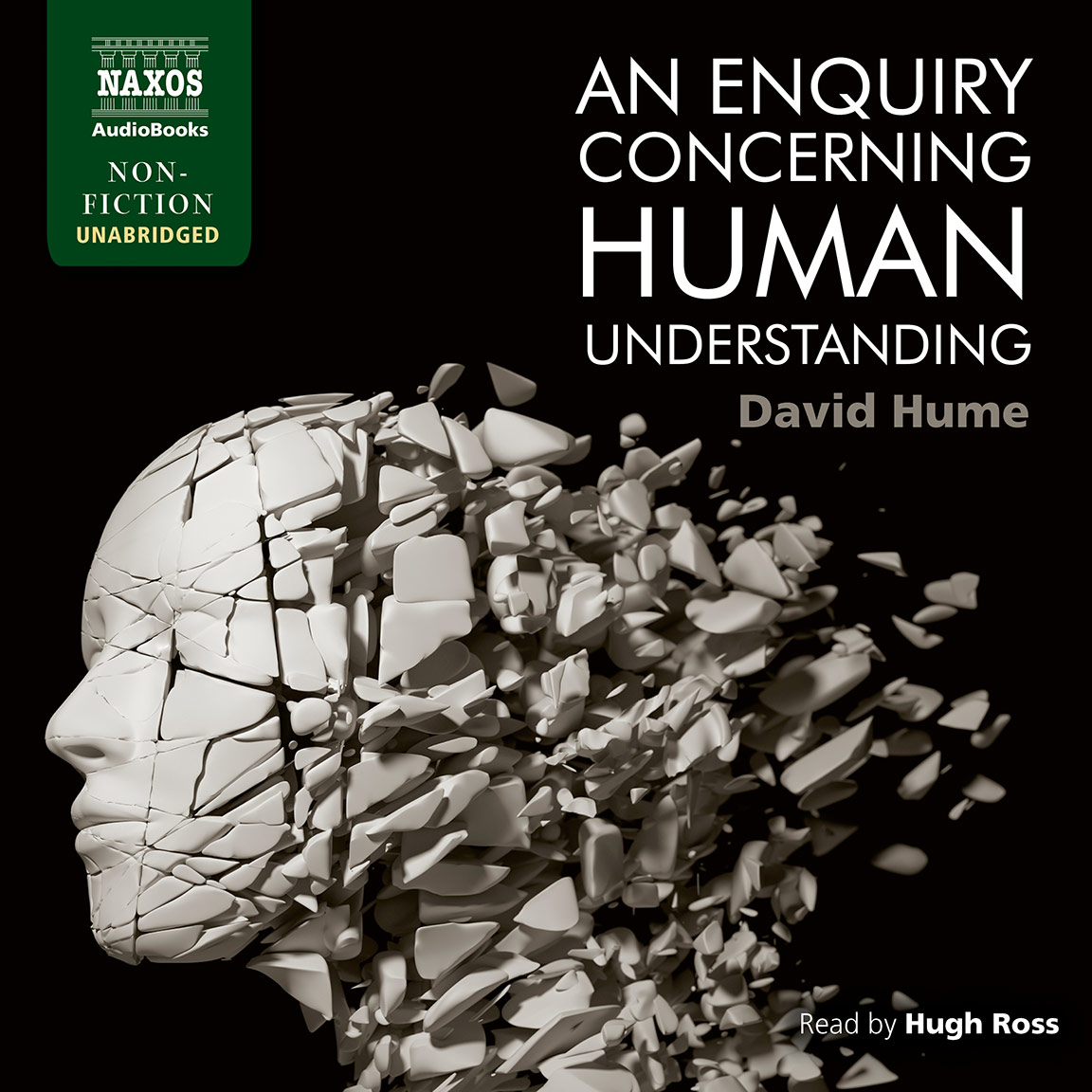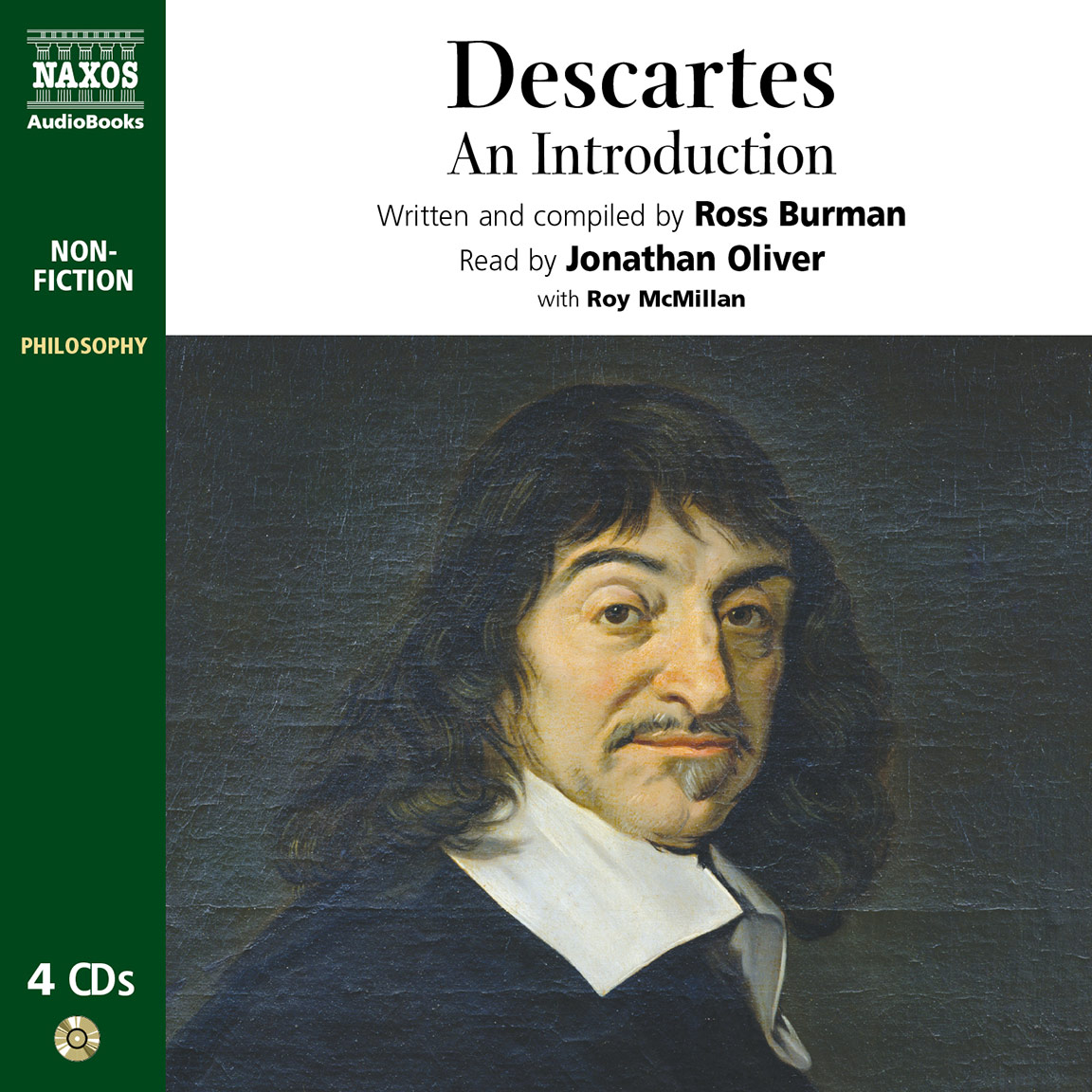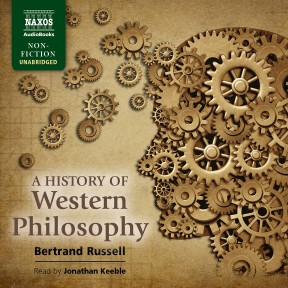
Audio Sample
Bertrand Russell
A History of Western Philosophy
Read by Jonathan Keeble
unabridged
Bertrand Russell’s A History of Western Philosophy serves as the perfect introduction to its subject. Charting philosophy’s course from the pre-Socratics up to the early twentieth century, Russell relates each philosopher and school to their respective historical and cultural contexts, providing erudite commentary throughout his invaluable survey. This engaging and comprehensive work has done much to educate and inform generations of general readers; it is written in accessible and elegantly crafted prose and allows for an easy grasp of complex ideas.
-
29 CDs
Running Time: 38 h 05 m
More product details
ISBN: 978-1-84379-739-5 Digital ISBN: 978-1-84379-740-1 Cat. no.: NA0136 Download size: 585 MB BISAC: PHI009000 Released: October 2013 -
Listen to this title at Audible.com↗Listen to this title at the Naxos Spoken Word Library↗
Due to copyright, this title is not currently available in your region.
You May Also Enjoy
Booklet Notes
For sixty years Bertrand Russell was the public face of English philosophy. Seen from the outside, he appeared to have everything: aristocratic birth; impeccable connections in the social, political and academic worlds; equally at home in the halls of Cambridge and the literary salons of London; intellectual power that was frightening to ordinary mortals; the ability to produce works on logic and mathematics so profound that only a handful of men in England could read them, but at the same time the literary skills to spread his ideas to the millions; decidedly a member of the establishment, the elite, and yet a man of fiercely independent mind. This was Russell’s image, and with his eternal pipe, his mane of white hair, his air of omniscience, and his cultured Oxbridge voice, he appeared the embodiment of the intellectual life, rising above the trivial day-to-day struggles that make up ordinary existence.
Yet behind this public persona lay a very different story, for Russell’s personal life, on both the intellectual and emotional levels, was a story of conflict, of disorder frequently approaching chaos, of pain, disappointment and failure. Disturbed by the early loss of the religious faith in which he was raised, Russell sought throughout his life certainty of knowledge. He thought he had found it first in mathematics, and then in the formal logic of philosophy. The great goal of his early life was to unite these two spheres, to show that mathematics and logic were equivalent systems of knowledge, using different but parallel languages. Together with Alfred North Whitehead, he wrote Principia Mathematica (1910-1913), a work so difficult and rarefied that he later claimed that its composition had permanently impaired his intellectual faculties, in spite of which he admitted that it had not succeeded in its stated aim. Russell spent the next forty years circling around and around this problem of the foundations of human knowledge. Sometimes he felt that a rigorous systematic answer must be attainable, at other times he despaired. He turned to writing popular works of philosophy, in which he explored the same problem in common-sense language. But all Russell’s work in this field remained exploratory; he never achieved a decisive breakthrough into a new vision of what truth was or might be, whether expressed in mathematical terms or in everyday language. All his life he remained a materialist and an atheist, convinced, in the famous words of his pupil Wittgenstein, that ‘The world is all that is the case’ and that the only true guide to the way the world really functions is science.
At the same time that this intellectual odyssey was being played out, stability in his personal life proved equally elusive, so much so that he seems to have a streak of utter irrationality, of self-destructiveness, in his nature, which contrasts oddly with what we might expect from a major philosopher. Russell was a compulsive womaniser: he was married four times, but he also conducted a string of affairs. The affairs and the marriages (except the last) all ended in bitter acrimony, leaving him with numbers of children and grandchildren whose traumatic experiences in later life caused him further pain. He became a social and political radical, imprisoned during the Great War, not directly for pacifism, but for criticism of the British government, which technically amounted almost to treason. This cost him his Cambridge fellowship and drove him into populist publishing as a source of income. But the separation from his academic peers led him into intellectual isolation, and if he attempted once again to write serious philosophy, those works were poorly received. He was rarely out of the news, however, and his former colleagues felt that he had become a populariser, a showman who could no longer be regarded seriously. He spent the war years in America, and it was there that he wrote his A History of Western Philosophy, published in 1945 and by far the most ambitious non-technical book he had ever attempted.
Introducing the work, Russell commented that in most books of this kind, the great philosophers seem to emerge out of a vacuum, their ideas are analysed, then they vanish, to be replaced by somebody else. Russell’s stated aim was to do something more than this, to show how philosophical ideas sprang from their time, the age in which they were produced, and which perhaps they in turn helped to shape. In other words he set out to write not so much a technical history from within the discipline of philosophy, but rather a cultural history of ideas. He wanted not a sequence of individual miniature portraits, but a coherent, fully composed picture, one that would explain what ancient Greece, medieval Christendom, the Renaissance, the age of empirical science, the age of romanticism and so on, were all about.
This was an exciting and praiseworthy aim: did he succeed? The answer seems to depend on whether one is a serious, academic philosopher, or merely that fabled creature, the intelligent layman. For the layman, Russell produced a rich narrative that filled in a vast amount of historical background, gave wherever possible a living picture of the philosopher in his time, and then an account of his ideas which was brief but authoritative. He brought between the covers of one book a story that covered more than two thousand years of history and thought, a story that would absorb an intelligent layman for many months, perhaps even years, a story to which he could return again and again, and which would spur him on to further more detailed reading.
But to the specialist philosopher the whole enterprise looked much shakier. To state that the historical background is important to philosophy is one thing; to explain precisely why any given era should produce one particular approach to philosophy, is quite another. General background about the medieval Christian Church, the Scientific Revolution, or the Romantic era, is not enough on its own to lead us into the mind of Aquinas, Descartes, or Hegel, nor is it enough to explain how these men could be outstanding original geniuses, and yet also embody the spirit of their age.
Russell’s own ideas and character are very much in evidence throughout. For example his antipathy to religion is well known, yet he devotes more than one fifth of the book to an account of Christian philosophy from the time of the Church Fathers to the eve of the Renaissance. At the end of this section his judgement on Saint Thomas Aquinas, the supreme rational theologian of the Middle Ages, is that ‘There is little of the true philosophic spirit in Aquinas… Before he begins to philosophise, he knows the truth.’ This surely stands as Russell’s universal judgement on religion as a whole. Russell’s approach here seems to have been modelled on that of Gibbon, conveying through stabs of none-too-subtle irony what he really felt about the history of religion. He was evidently fascinated by St Augustine, a man as much the victim of his own passions as Russell himself. Surprisingly however, he was also drawn to Plotinus, the neo-Platonist and one of the most ethereal of all philosophers. Plotinus felt a keen sense of the imperfections of this world, and sought to escape from the anarchy of experience. In reaction, he proposed for the universe a pure, idealised, spiritual structure, which could be known only by rigorous intellectual discipline, and evidently Russell was reminded here of his own youthful pursuit of the ideal of analytical logic, still sadly unfulfilled.
One of the puzzles of the book is this: Russell states explicitly his belief that true knowledge comes only from science, that outside science there is only speculation, untestable and unprovable. Yet in the book the amount of space devoted to the history of science and its relationship with philosophy is very small, even when discussing the 19th and 20th centuries. In the closing sections of the book, modern science – atomic structure, quantum physics and relativity – also occupy one page, while the expanding universe is not mentioned at all, and nor is Freudian psychology. The only definition of philosophy that Russell puts forward is the rather vague one that it occupies an intermediate borderland between science, which offered certain knowledge, and theology, which offered only dogma. If this were true, we wonder why he did not feel it necessary to counterpoint the history of science with that of philosophy, showing how the one impacted on the other. Nor does he reflect on the limitations of science, its inability to guide us in the moral, spiritual and existential choices of real life.
Perhaps the central truth is that a history of philosophy cannot be held together without some strong conception of what philosophy is, outside of its time-bound manifestations. Wisdom and knowledge, creation and cosmology, God and man, nature and man, good and evil, law and social structure, science and mathematics, history and purpose, perception and thought, language and logic, experience and reason: at various times all these subjects have absorbed those whom we call philosophers, and many of them have concentrated on one or two of these areas, ignoring the others or even dismissing them as meaningless. This diversity of subject matter makes it extremely difficult to grasp or define the identity of philosophy as a whole. Philosophy is clearly a quest for truth, a reflection on human knowledge and on how we may arrive at the truth. Throughout its history, philosophy has pursued this quest in a number of different fields, through different problems and areas of human experience. To explain why these different areas have appeared to be central to philosophers in different historical epochs, and whether these problems have ever been solved, is a massive task, requiring enormous erudition and exceptional clarity of thought. Russell guides us expertly through the nature of Plato’s ideal society, Aristotle’s metaphysics, Descartes’ theory of mind and body, Spinoza’s serene pantheism, Nietzsche’s glorification of will and power, the foundations of logical analysis laid by Frege and by Russell himself, and many other difficult ideas. But does he manage to pull all of this together into a purposeful narrative and identify what the purpose is, or say whether it might ever be capable of fulfilment?
Professional philosophers questioned this very point, and they either ignored the book out of respect for Russell, or allowed it faint praise as a layman’s introduction; any history of philosophy that devoted a chapter to Byron was certain in any case to dismay academic readers. In the middlebrow press it was well reviewed by distinguished names like G.M. Trevelyan, A.L. Rowse and Julian Huxley – none of whom were of course philosophers – and the book was specifically cited when Russell was awarded the Nobel Prize for Literature in 1950. It still holds the status of a popular classic.
Russell brought his history to an end around 1920, just a little too early for him to take note of existentialism, which is a pity, because if ever there was a philosophy that was a child of its time it is surely existentialism, the product of twentieth-century war, dehumanisation and the disillusionment with formal philosophy. Yet in the last dozen years of his life Russell seemed to throw himself into a form of social commitment à la Sartre, devoting himself to anti-nuclear and anti-war campaigns which kept him still a giant figure in the public eye, as he had been for sixty years. His own formal philosophy had been unable to do justice to the richness of life, but throughout his extraordinary life he had shown a willingness to throw away logic when driven by deeper impulses that he could not rationalise, and the last phase of his life completed this pattern, caught in the intractable battle between reason and passion.
Notes by Peter Whitfield
